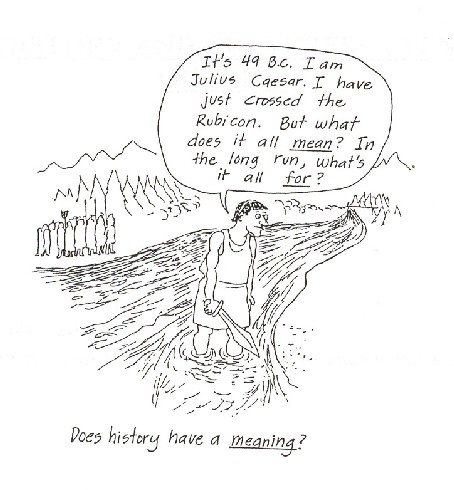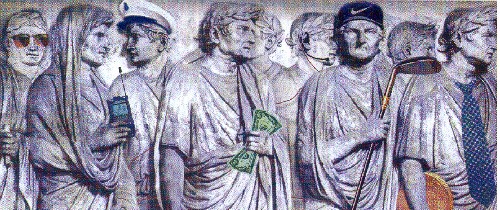
HIS 120 CVS1: WORLD HISTORY TO 1000 CE
North Island College
Winter 2025Meeting Time:
T, Th 2:30 - 3:50 pmMeeting Place: Tyee 202
Instructor: Dan Hinman-Smith
Office: Trades Building 112
Office Hours: Tues. 4:00 - 5:00 pm; F 11:30 am - 12:50 pm (or by appointment)
Office Phone: 250-334-5000, Extension 4024
Web-Site: http://www.misterdann.com/
E-Mail: dan.hinmansmith@nic.bc.ca
North Island College is honoured to acknowledge the traditional territories of the combined 35 First Nations of the Nuu-chah-nulth, Kwakwaka'wakw and Coast Salish traditions, on whose traditional and unceded territories the college's campuses are situated. The Truth and Reconciliation Commission of Canada's final report calls for 94 actions toward restoring a balanced relationship between indigenous peoples and settler communities in this country.

Course Description
This course surveys world civilization from ancient times to the beginning of the Medieval era. It will include study of such areas of history as ancient Mesopotamia, Egypt, China, Japan and India; classical Greece and Rome; Africa and pre-contact America; and Islam, Byzantium, and Western Christendom. The focus will be upon identifying broad themes, issues and patterns in world history, and upon accounting for political, social, cultural, intellectual, religious and economic change.
Texts
**It is important that you acquire these books. They are available for purchase at the NIC Bookstore. I have also provided links to e-text editions below.
Tony Perrottet,
Naked Olympics: The True Story Of The Ancient Games (New York: Random House, 2004).Lesley Hazleton,
After The Prophet: The Epic Story Of The Shia-Sunni Split (New York: Anchor Books, 2009).David Graeber and David Wengrow, Dawn Of Everything: A New History Of Humanity (Toronto: Penguin Random House Canada, 2021).
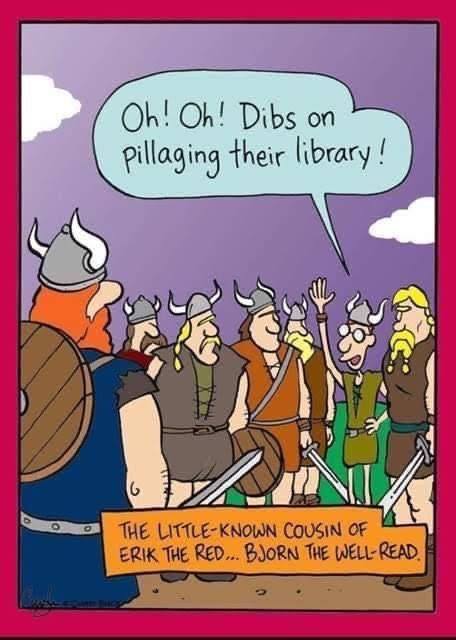
Learning Outcomes
1. Outline the most basic contours of prehistory and assess the causes and consequences of the rise of civilizations.
2. Compare and contrast selected world civilizations within an analytical context.
3. Explain the significance of and explore the interrelationships between the great belief systems of the ancient Near East and Asia, including Judaism, Hinduism, Confucianism, Taoism, and Buddhism.
4. Analyze changes in ancient Greek society, including the rise of philosophical and scientific inquiry, and the invention of the concept of citizenship.
5. Account for the formation of a unified China under a bureaucratic government, and compare China's early history to Rome's path from republic to empire.
6. Explain the circumstances that led to the spread of Christianity in the West.
7. Outline the origins of Islam and analyze its rapid expansion.
8. Explore the relationships between the economy, the political structure, the culture, and the social organization of particular civilizations.
9. Identify central themes and issues from the past, and theorize about the complex connections between the ancient, classical, medieval and contemporary eras.
My Assumptions About This Course
That you are interested in world history and eager to learn as much about it as possible in this course.
That it will be impossible to learn all that you would like to learn given the massive amount of relevant material and the time constraints involved.
That history should involve not merely the struggle to understand past events but also to find meaning from those events.
That my job as instructor is to strike an appropriate balance between providing a common core curriculum and setting up structures that also allow you to study materials of personal interest.
That this course should help to set you up for future formal or informal study of world history rather than being a survey that teaches you "all that you need to know" about the ancient past.

Comox Valley Territory Acknowledgement
Tentative Class Schedule
Week 1
Tuesday, January 7
a) Course Introduction
b) Name That Monument!
Thursday, January 9
a) Discussion: Cyrus Cylinder
b)
Lecture: Between The Rivers -- Ancient Mesopotamia (I)Viewing Assignment:
"2600 Years Of History In One Object," Ted Global, July 2011.
Reading Assignment:
Marcos Such-Gutierrez, "
Sumer: Cradle Of Civilization," National Geographic History Magazine (July/August 2023): 16-27.Optional
Extras:"
How To Survive In Babylonia," Episode 414, The Ancients, April 5, 2024. [53 mins]Cameron Laux, "The Story Of Handwriting In 12 Objects," BBC Culture, April 26, 2019.
Week 2
Tuesday, January 14
a) Discussion: History 120 Orientation Exercise
b) Discussion: History Of The World In 100 Objects #1-20
c) Lecture: Between The Rivers -- Ancient Mesopotamia (II)
HIS 120 Orientation Exercise:
Mister Dan Page HIS 120 Orientation Exercise
Listening Assignment:
Listen to at least three of the following 14-minute audio features from former British Museum Director Neil MacGregor's BBC documentary series
Episodes #1-10, History Of The World In 100 Objects
(Making Us Human and After The Ice Age)Episodes #11-20, History Of The World In 100 Objects (The First Cities And States and Beginning Of Science And Literature)
Thursday, January 16
a) Video: "Egypt's Golden Empire" (PBS, 2010) [55 mins]
Reading Assignment:
Jose Lull, "
Amarna Letters: Power, Princesses, And Presents," National Geographic History (November/December 2020): 32-43.Nicole B. Hansen, "How Ancient Egyptians Lived And Worked In The Valley Of Kings," The Collector (November 13, 2019).
Week 3
Tuesday, January 21
a) Discussion: Ancient Egypt In The News
b) Lecture: "The Habit of Civilization Was Continuous Here": Ancient Egypt (3000 BCE-30 BCE) (I)
Reading
Assignment:Browse extensively in Ancient Egypt In The News
Optional Extras:
Browse in
King Tut's Tomb At 100 Discussion Topic"
The Pharaoh And The Showman," Episode 3, Egypt: Rediscovering A Lost World (BBC, 2005) [56 mins].Thursday, January 23
a) Discussion: Cleopatra In History And Myth
b) Lecture: "The Habit of Civilization Was Continuous Here": Ancient Egypt (3000 BCE-30 BCE) (II)
Reading Assignment:
Browse extensively in Cleopatra In History And Myth Discussion Topic
"Nefertiti: Artistic Icon, Enduring Enigma," National Geographic History (January/February 2022): 32-47.
***Thursday, January 23: First Half Journal Due For An Ungraded Check-In
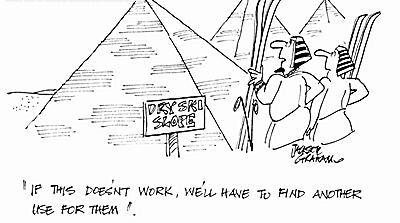
Week 4
Tuesday, January 28
a) Discussion: Naked Olympics
Reading
Assignment:Tony Perrottet
, Naked OlympicsThursday, January 30
a) Video: "Kingdom Of David: The Saga Of The Israelites" (PBS, 2010) [60 mins]
Reading Assignment:
Javier Del Barco, "
The Temple Of Jerusalem: From King Solomon To The Roman Empire," National Geographic History Magazine (March/April 2024): 34-49.Optional Extras:
Browse in Dead Sea Scrolls Discussion Topic
***Thursday, January 30: Naked Olympics Seminar Note Due (10%)
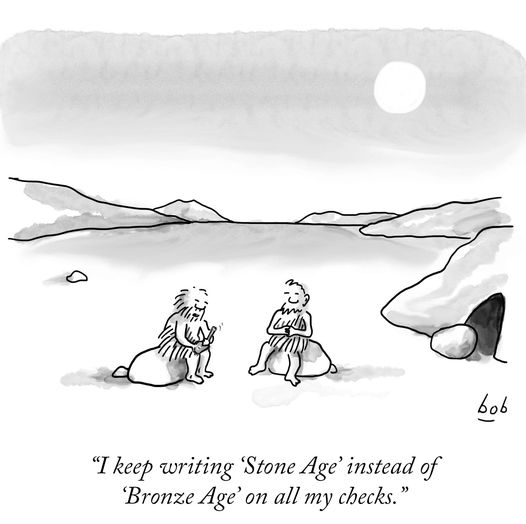
Week 5
Tuesday, February 4
a) Discussion: Bronze Age Collapse
b) Discussion: Museum Of Lost Objects
c) Possible Mini-Lecture: Ancient Israelites Timeline
Listening Assignment:
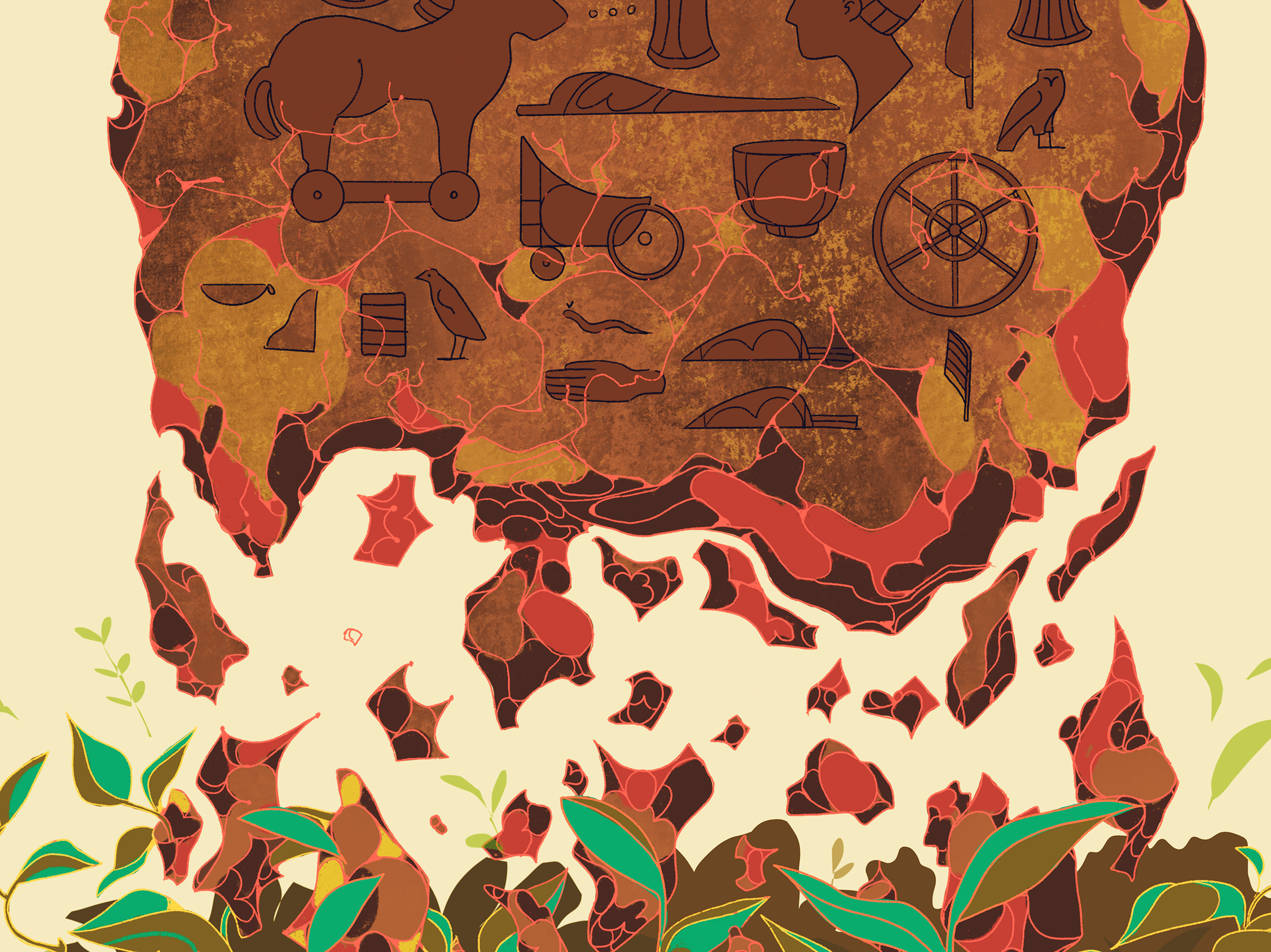 "The
Aftermath Of Collapse: Bronze Age Edition," Throughline, NPR,
September 2, 2021. (56 mins)
"The
Aftermath Of Collapse: Bronze Age Edition," Throughline, NPR,
September 2, 2021. (56 mins)
Listen to at least two episodes from The Museum Of Lost Objects series.
Optional Extras:
Browse in Bronze Age Collapse Discussion Topic.
"Babylon And The Bible," Episode 315, The Ancients, May 27, 2023. [41 mins]
Thursday, February 6
a) Lecture: "We Are All Greeks": The Glory That Was Greece -- From The Minoans To Alexander (I)
Reading Assignment:
Carlos Garcia Gual, "
Herodotus: The Father Of History," National Geographic History Magazine (March/April 2018): 40-51.Optional Extras:
Browse in Herodotus And Thucydides Discussion Topic.
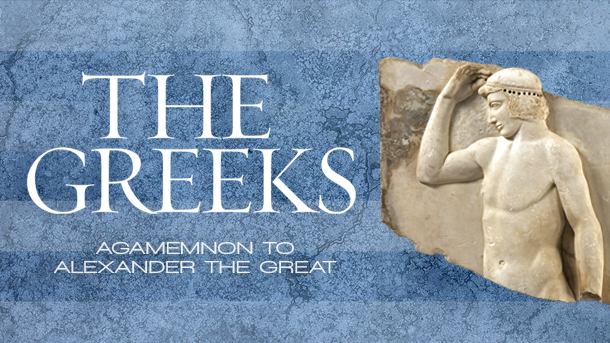 Greeks, National Geographic:
Greeks, National Geographic:
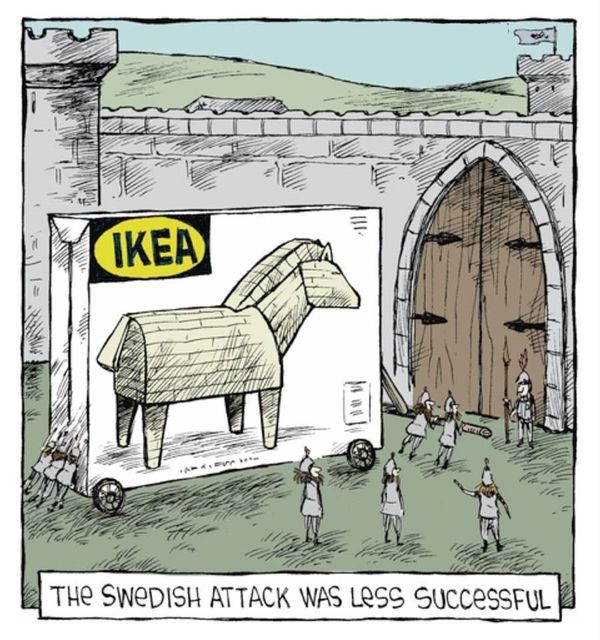
Week 6
Tuesday, February 11
a) Video: "The Spartans" (PBS, 2004) [60 mins]
Thursday, February 13
a) Lecture:
"We Are All Greeks" -- The Glory That Was Greece (II)Reading Assignment:
Maria Jose Noain, "
Wives And Goddesses: Women In Ancient Greece," National Geographic History Magazine (September/October 2022): 20-29.Listening
Assignment:"
Spartan Women," Natalie Haynes Stands Up For The Classics, BBC Radio 4, August 27, 2022. [29 mins]Optional Extras:
Adrienne Mayor, "
The Real Amazons," National Geographic History Magazine (May/June 2020): 32-45.***Thursday, February 13: First Half Journal Due (30%)
***Family Day And Reading Break, February
17-21
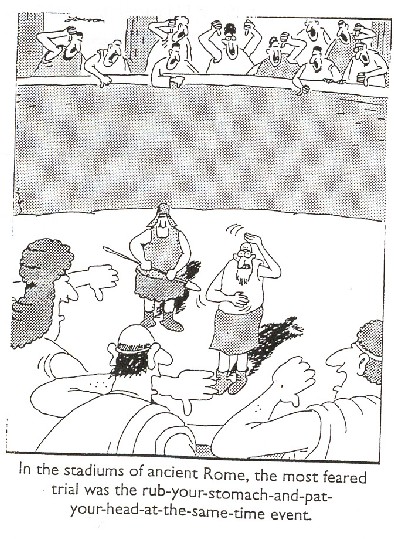
Week 7
Tuesday, February 25
a) Discussion: Pompeii
b) Lecture: The Grandeur That Was Rome (1)
Reading Assignment:
Browse extensively in Pompeii Discussion Topic.
Thursday, February 27
a) Video: "Meet The Romans" (BBC, 2012) [60 mins].
Reading Assignment:
Adrian Goldsworthy, "Letters From The Roman Frontier: Life At Vindolanda," National Geographic History Magazine (May/June 2023): 42-57.
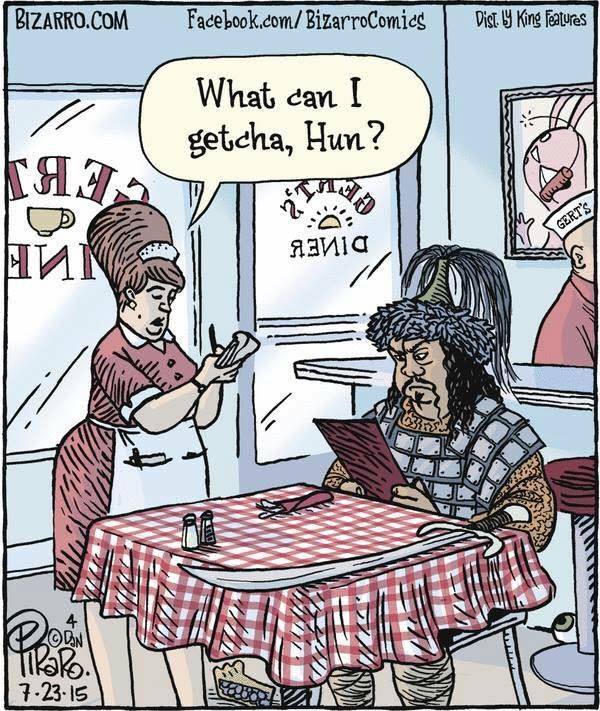
Week 8
Tuesday, March 4
a) Mini-Presentations: Ancient Rome And Early Christianity Scavenger Hunt
b) Lecture: The Grandeur That Was Rome (2)
Mini-Presentation Exercise:
Complete the
Ancient Rome And Early Christianity Scavenger HuntViewing Assignment:
Watch either of the following programs:
"
Emperors Of Rome With Mary Beard," History Hit, September 27, 2023. [38 mins] or "Meet The Roman Emperor With Mary Beard," BBC, 2024. (59 mins)Optional Extras:
David Alvarez, "The Need For Speed: Chariot Racing In Rome," National Geographic History Magazine (May/June 2021): 60-75.
Jesus Rodriguez Morales, "Roman Roads: Arteries Of An Empire," National Geographic History Magazine (January/February 2020): 40-53.
Thursday, March 6
a) Discussion: Jesus -- Rise To Power
b) Lecture: Early Christianity
Viewing Assignment:
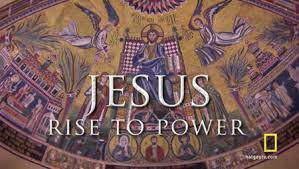 Jesus: Rise To Power, National Geographic, 2015. Watch at least one of
the following:
Jesus: Rise To Power, National Geographic, 2015. Watch at least one of
the following:
"Messiahs," Episode 1 [45 mins]
"Martyrs," Episode 2 [45 mins]
"Christians," Episode 3 [45 mins]
Optional Extras:
"The Lost Gospels," (BBC Four, 2007). [89 mins]
Week 9
Tuesday, March 11
a) Discussion: After The Prophet
b) Possible Mini-Lecture: Sunni And Shia
Reading
Assignment:Lesley Hazleton
, After The Prophet: The Epic Story Of The Shia-Sunni SplitThursday, March 13
a) Lecture: Islamic Civilization (610-1258)
***Thursday, March 13: Second Half Journal Due For An Ungraded Check-In
Week
10Tuesday, March 18
a) Video: "Ages Of Gold," Episode 4, The Story Of India (BBC, 2008) [59 mins]
Tuesday, March 18: After The Prophet Seminar Note Due (10%)
Thursday, March 20
a) Discussion: Indian History In The News
b) Lecture: Indian Civilization
Reading Assignment:
Browse extensively in
Ancient Indian History In The NewsBrowse extensively in From The Mauryans To The Mughals In The News
Optional Extras:
"Beginnings", Episode 1, The Story Of India (BBC, 2008) [59 mins].
"Power Of Ideas," Episode 2, The Story Of India (BBC, 2008) [59 mins].
"Spice Routes And Silk Roads," Episode 3, The Story Of India (BBC, 2008) [59 mins].
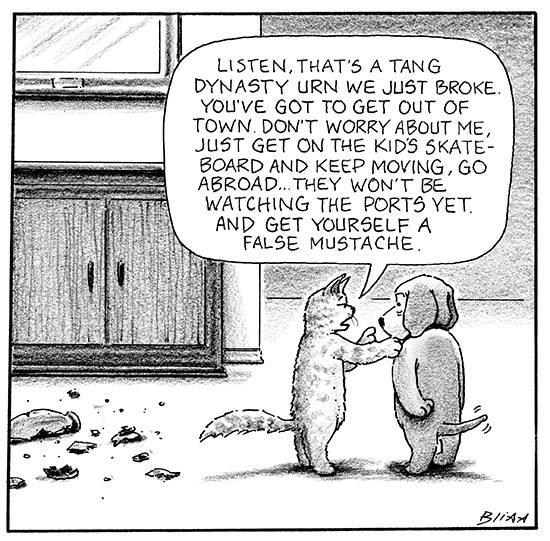
Week 11
Tuesday, March 25
a) Video: "Silk Roads And China Ships," Episode 2, The Story Of China (BBC, 2016)
Thursday, March 27
a) Discussion: The Warring States Period and Confucius
b) Lecture: China -- The Middle Kingdom
Viewing Assignment:
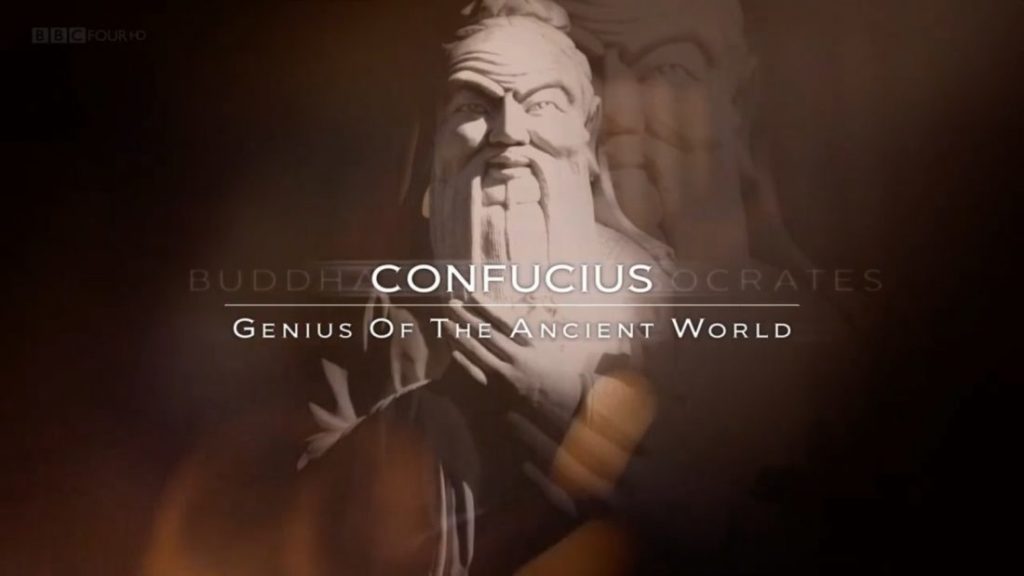 "Confucius,"
Episode 3, Genius Of The Ancient World, BBC, 2015. [59 mins] Also available
through
NIC and Films On Demand.
"Confucius,"
Episode 3, Genius Of The Ancient World, BBC, 2015. [59 mins] Also available
through
NIC and Films On Demand.
Listening Assignment:
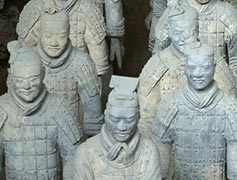 "China: The Warring State Period,"
In Our Time, BBC Radio 4, April 1, 2004.
"China: The Warring State Period,"
In Our Time, BBC Radio 4, April 1, 2004.
Optional Extra:
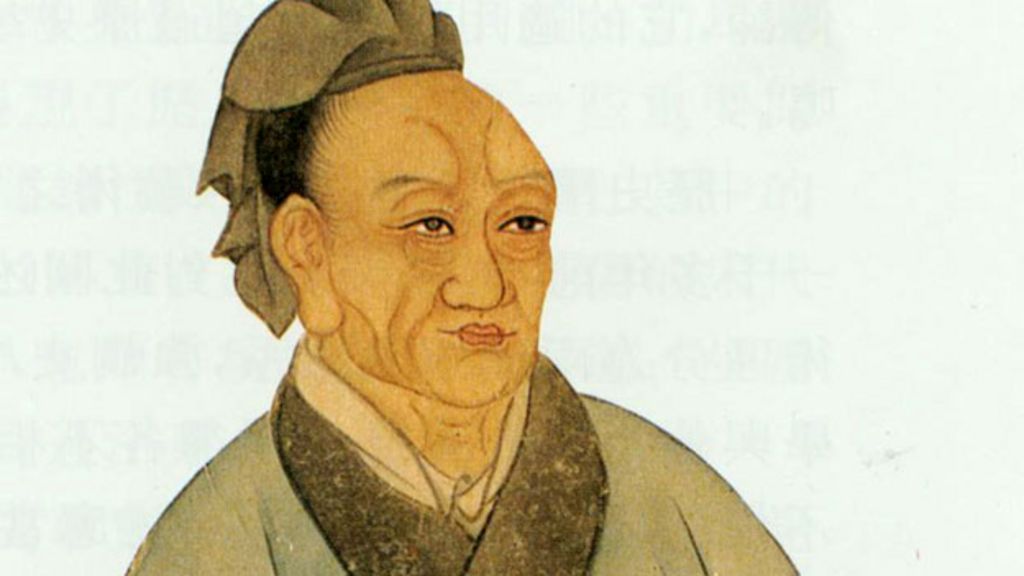 "Sima
Qian: Grand Historian,"
Chinese Characters, BBC Radio 4, April 16, 2018.
"Sima
Qian: Grand Historian,"
Chinese Characters, BBC Radio 4, April 16, 2018.
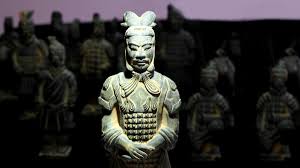 "The
Art Of War: Ancient Chinese Guide To Victory,"
The Forum, BBC World Service, August 21, 2022. (40 mins)
"The
Art Of War: Ancient Chinese Guide To Victory,"
The Forum, BBC World Service, August 21, 2022. (40 mins)
Week 12
Tuesday, April 1
a) Discussion: Mayans In The News
b) Video: "Cracking The Mayan Code," NOVA, PBS, 2010 (54 mins.)
Reading Assignment:
Browse in Mayans In The News
Ana Garcia Barrios, "
The Maya Collapse: A Mysterious End," National Geographic History Magazine (July/August 2023): 58-73.Thursday, April 3
a) Discussion: The Silk Road and The Golden Road
b) Mini-Lecture: The Silk Road and The Golden Road
Reading Assignment:
Browse extensively in the
Golden Road Discussion TopicCarles Buenacasa Perez, "
The Silk Road: Connecting East And West," National Geographic History Magazine (January/February 2018): 64-77.Viewing Assignment:
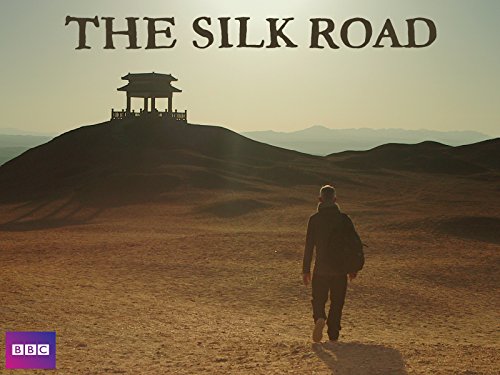 "The Silk Road," BBC 4, 2016. Watch at least one of the following:
"The Silk Road," BBC 4, 2016. Watch at least one of the following:
Episode 1 [59 mins]
Episode 2 [59 mins]
Episode 3 [59 mins]
Listening Assignment:
"
Journey To Nalanda And The Library Of Jewels," Episode 132, Empire, March 19, 2024. [44 mins]Optional Extras:
Browse in the Silk Road Discussion Topic
Week 13
Tuesday, April 8: Optional Class
Tuesday's Class is fully optional
a) Discussio
n: Ancient China Scavenger Huntb) Discussion: Dawn Of Everything
***If you do come to class, I expect you to complete at least one of the following options:
Option 1:
Complete the Ancient China Scavenger Hunt
Option 2:
Browse extensively in the
Dawn Of Everything Discussion Topic and/or read significant sections of David Graeber and David Wengrow, Dawn Of Everything: A New History Of Humanity***Friday, April 11: Second-Half Journal Due (30%)
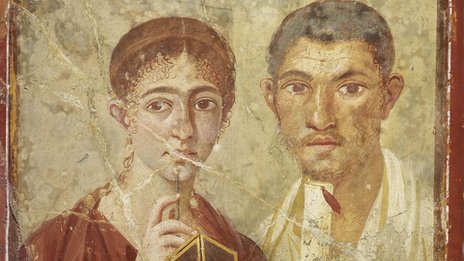
Evaluation
|
Letter of Introduction |
1% |
|
First-Half Journal |
30% |
|
Second-Half Journal |
30% |
| Seminar Notes (2 x 10%) | 20% |
|
Class Preparation and Participation |
19% |
a) Letter of Introduction (1%)
Write a short letter of introduction to me at the beginning of the semester. This should be at least 100 words in length and is designed to give me a beginning idea of who you are and how I might best serve you as a teacher, and to provide me with an opening snapshot of the class as a whole. You need not use the following questions as cues but they may be helpful. Who are you? Where are you from? How might you begin to describe your community and what life is like there if you've come to NIC from far away? What do you miss and what do you think would most surprise me if I were to visit your hometown? What are your interests? Why are you taking this course? What are your thoughts and reflections as you begin HIS 120? How familiar are you already with World History? Are there topics associated with the course that you know will be of potential interest? Do you have any questions, concerns, or suggestions? This is an assignment I ask of students in each of my classes. Although this is not a graded assignment, I would appreciate it if you took several minutes writing a thoughtful introduction? If you are enrolled in more than one class with me this semester, a single letter of introduction will suffice, but mention something about each of the courses. If you have taken a class with me before, please update what you wrote before and complete a new letter of introduction.
b) Journal (30% + 30%) = 60%
The most substantial assignment in HIS 120 will be the on-going World History to 1000 CE Journal. The purpose of the journal is to provide you the opportunity for frequent thoughtful, analytical and personal commentary upon course-related material. The Journal should consist of a series of short writings or entries of varying lengths that offer your analysis of and responses to the curriculum. These entries must be entirely in your own words without any use of Artificial Intelligence tools.
The regular starting place for the Journal should be the weekly Reading, Viewing, and Listening Assignments on the Syllabus Page. Although you certainly are not expected to write about all these resources, you should demonstrate sustained engagement with the core curriculum. It is expected that you work regularly on the Journal throughout the semester, writing in it on a weekly basis. The Journal is meant to be coordinated with our class discussions and your willingness and ability to stay current with your course responsibilities will have a major impact upon the overall quality of this course.
You will be handing in your Journal four times during the semester. I want to check at the three-week mark of the course that you have got a good start on your Journal that we share a mutual understanding as to the nature of the assignment. This will be an ungraded submission. You then will hand in your completed First Half Journal at the mid-way point of the course. This submission will be worth 30% of your course grade. We'll follow a similar procedure in the second half of the semester in which you will be expected to hand in your In-Progress Second Half Journal in mid-March for an ungraded check-in and then again at the end of the semester for a formal evaluation (30% of your course grade).
The emphasis in the Journal should be upon your own commentary rather than upon a mere repeating of historical information. What are you learning? What is most interesting? What analysis might you offer? How might you draw connections between different topics; between the history discussed and more contemporary times; or between the course resources and your own experiences, interests, and knowledge?
In order to give you a basic structure for the Journal, I have provided you with Recommended Journal Entries for both your First Half and Second Half Journal in the Assignments sections of the course web-site. You should return several times throughout the semester to these lists. But while these lists should provide the core structure of your Journal, you need not treat it as an everything-on-this-list-must-be-completed mandated. You are encouraged to be imaginative in your own investigation and analysis of World History and to devote extra time to those parts of the course that you find to be most interesting.
Some of you may find it useful to take notes on different course resources. If you do this, I encourage you to hand these in at the same time as your Journal. Rather than being folded into your Journal, however, such notes should be in a separate file labeled as your Note-Taking Appendix. These notes can be hand-written or digital, and can be in whatever format works best for your own learning. Some of you may want to engage in active note-taking in which your own voice and comments are interspersed with your notes. Some of you may want to draw out main points from the resources and summarize these in your own words, while others of you may choose to frequently highlight and lift key passages verbatim from the readings or documentaries to your notes.
Creative use of Artificial Intelligence is not inappropriate for some sections of your Note-Taking. However, it is fundamental that you consistently engage directly with the core curriculum yourself rather than encounter it indirectly and inauthentically. And the Journal entries themselves must be entirely in your own words.
c) Seminar Notes (2 x 10%) = 20%
Seminar notes are commentaries of at least two double-spaced pages apiece (500+ words) upon Naked Olympics and After The Prophet. Naked Olympics will be due in the first half of the semester, while After The Prophet will be due in the second half. The purpose of these reflective reading responses is to provide you with the opportunity to organize your thoughts after each of those major readings and to facilitate thoughtful group discussion.
The Seminar Notes should be analytical in nature and should highlight key themes from the reading. Your own interpretations must be at the centre of each seminar note. I want to see you engaging directly with the text rather than paraphrasing someone else's descriptions or review. Although you should write concisely, it is great if one or more of your seminar notes are considerably longer than the recommended length. Seminar Notes can be typed or hand-written, though for either format you should take some notes and carefully organize your thoughts before attempting to write your paper. I encourage you to hand in these rough notes with your completed Seminar Note if you indeed have these.
The excellent seminar note will probe chosen themes in an original, organized, and analytical manner. The commentary will effectively connect together your larger ideas with the particularities of the reading, using examples and specific text to accentuate your writing. A good seminar note will show evidence of attentive reading and of engagement with the text. You will organize your thoughts coherently and demonstrate the ability to explain and to explore key themes that you highlight from the text. The satisfactory seminar note will offer evidence that you have engaged directly with the text and drawn something of larger meaning from it. Your ideas may not be fully developed or as clearly stated as might be the case, but you do demonstrate that you have taken something away from your encounter with the book. An unsatisfactory seminar note is one in which you either seem to rely entirely upon secondary sources and thus do not engage with the text, or in which you do not demonstrate any understanding of the text.
Rather than being graded on a letter scale, the seminar notes will be evaluated on a check, check-plus, check-plus+, and check-minus basis:
Check: A fully satisfactory seminar note (7.3/10, B) -- The seminar note offers evidence that you have engaged directly and substantially with the text and drawn something of larger meaning from it. Your ideas may not be fully developed or as clearly stated as might be the case, but you do demonstrate that you have taken something away from your encounter with the book.
Check-Plus: A strong seminar note (8.6/10, A) -- The strong seminar note will offer thoughtful analysis and/or a well-developed commentary upon the text. It will probe chosen themes in an original, organized, and analytical manner. The commentary with effectively connect together your larger ideas with the particularities of the reading, using examples and specific text to accentuate your writing.
Check-Plus+: An outstanding seminar note (9.5, A+) -- Such a note pushes far beyond the basic expectations for this assignment in terms of both its originality and the extent to which it probes the reading.
Check-Minus: A weak seminar note (6.1, C) -- The seminar note includes some material of relevance and evidence of direct engagement with the text. However, it seems to be based upon limited reading and/or a lack of understanding of the book's core themes.
Check-Minus-Minus: An unsatisfactory seminar note. (0, F) A note in which it is impossible to tell whether there was any direct engagement with the text. The assignment seems to have relied entirely upon secondary sources and/or to have been completed using Artificial Intelligence tools.
There typically will not be the opportunity to revise Seminar Notes and submit them a second time.
Seminar notes will be evaluated separately from the Journal. However, they are not meant to be intimidating. I consider them to be very similar to particularly thoughtful and well-developed Journal entries.
The Dawn Of Everything is a lengthy and challenging book that we will discuss later in the semester. Although it is a reading that can add much to the course and one that I will encourage you to analyze within your Journal, seminar notes are only required for our two shorter book-length readings.
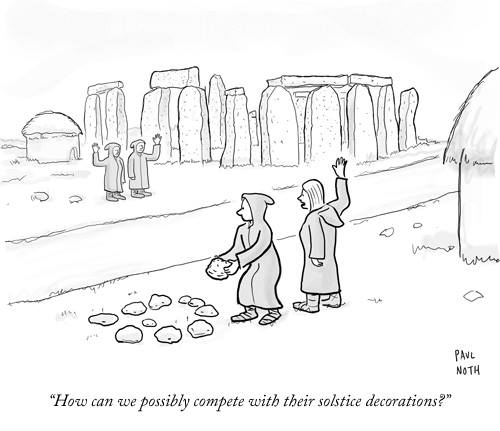
d) Class Preparation And Participation (19%)
The class participation grade will be based upon attendance; pre-class preparation; and the willingness to contribute thoughtfully to small-group and full-class discussion.
HIS 120 will combine lectures and documentaries with extensive small-group and full-class discussion. Sometimes we'll devote an course period to a major reading. Other times, we will have shorter but focused conversations about a particular topic.
I would like to encourage a classroom environment in which all are eager to share their ideas and in which lectures are accompanied by thoughtful dialogue. This will be dependent not just upon your willingness to speak, but your pre-class preparation and your willingness to listen. The significant class participation component derives from my belief that the most engaging and successful courses are not ones in which knowledge is merely transferred from instructor to student but in which a genuine learning community exists in which all participants share their perspectives and insights.
Although attendance is not required, I will take roll, and those who are not in class regularly will both receive a poor grade for this part of the course and deprive others in the class of their own insights.
I do appreciate that some students are shy or for other reasons may find it intimidating to speak in our full-group setting. I do want these students to push themselves to nonetheless fully engage with the class and participate in discussions. I will nonetheless be understanding of these students so long that they can clearly demonstrate to me by other means that not only do they come to class but they do so well-prepared and are engaged with the course material.
Academic Integrity, Artificial Intelligence, And My Approach To This Course
In my opinion, a culture of academic dishonesty currently permeates significant sections of North Island College. Although there are complex reasons for this, its impact upon the educational experience of all those associated with the college is profound.
As a separate but related theme, Generative AI has appeared as a new revolutionary technology within the field of education. That the role this technology might play within formal education is not yet understood and is at present very ill-defined is hardly surprising. Nor is it surprising that many teachers and students may have very different assumptions in regards to what currently represents an appropriate use of AI.
How to balance ensuring student accountability with student learning has always been a challenge. But it is even more so now given current realities and developments. Not surprisingly, many instructors are radically altering their course structures with an emphasis upon accountability.
Let me state my own position as clearly as possible.
In regards to the use of Artificial Intelligence, I agree that this technology has great utility as a research and study tool and that it can be used in these ways in this course. I expect, though, that your Journal entries, your Seminar Notes, and your Discussion Forum Contributions be fully in your own words; to reflect your own ideas; and to be based upon your own direct engagement with the core curriculum, including the course readings and documentaries.
I cannot be an effective teacher if I am working against you or if you are working against me. I have no interest in engaging in such an arms race. This does not mean that I am naive nor that there will be no consequences if I determine that you are not proceeding throughout the course with full academic integrity.
However, rather than attempting to set up the course in such a way that student accountability becomes its virtual raison d'etre, I continue to believe it is best to adopt a structure based upon my own beliefs about what approach can best meet the needs of student learning assuming honest, good, faith, responsible, and engaged effort on the the part of each class member.
We are all connected in a web of learning and mutual influence. As a result of my own teaching choices and philosophy, it is easier to cheat in my classes than in some others. You should be under no illusions, however. The individual choices you make will have a significant impact upon others' experience of this course. And, collectively, it is within your power to sabotage the course or, at your best, to transform the course into something special.
Late Policy
The curriculum for this course is organized on a week-by-week basis, with the course's success being in part dependent upon full pre-class student preparation. This is particularly the case for our more involved discussions, but it holds true for the daily rhythms of the course as well. Late assignments are also often an extra burden from an instructor standpoint. Due dates should be noted and met.
The Journal is designed as an on-going exercise that is broken up into regular small writing exercises rather than being a project to be completed all at once. I need to see your In-Progress Journal by the listed due dates in both the first half and second half of the semester.
I do appreciate that there may be occasions where a very few extra days to polish an assignment in the midst of competing deadlines can be helpful, and thus I deliberately assume a good-faith effort on the part of students to meet the due dates and provide a small cushion of flexibility for all the graded assignments without any academic penalty. That does not mean the due dates are unimportant or that extensions are automatically granted. You should discuss possible extensions with me directly and I reserve the right to refuse to accept any late major assignment if you do not check in with me first. As a general rule, no assignment will be accepted more than two weeks late.
It is fundamentally important that you set up a meeting with me if you are falling behind with your studies. Please do not come to me at the end of the semester anticipating that you can submit a portfolio of work that will compensate for a semester of academic inactivity. This will not be possible. I appreciate that courses at NIC can be very expensive. However, I have set up the structure of my courses so that those students who approach their studies in good faith and with effort should attain success. Moreover, registration within a course carries with it not just the expectation that you will engage with it, but also a responsibility towards your fellow students. The decisions you make in regards to your approach to your studies will have a direct impact upon their educational experience.
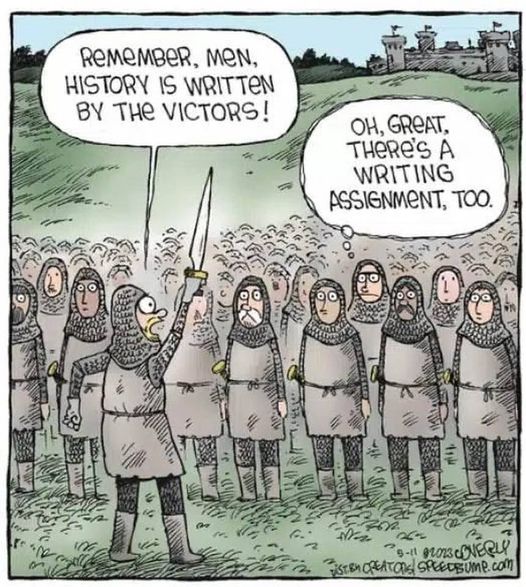
Time Commitment
Although the time it takes individual students to complete course responsibilities varies individually, I have set up the course with the expectation that you devote at least an average of 4 hours a week of out-of-class study to HIS 120. It is fundamental to the success of the course that you complete the reading, viewing, and listening mini-assignments these before the relevant class sessions so that you can contribute to small-group and full-class discussion. It is important that you not fall behind on your assignments. Please stay in close communication with me and let me know if you are experiencing challenges in keeping up with the curriculum. The syllabus is loaded with many materials and includes an array of options. You should give yourself permission to slow down and go more in-depth on topics of particular interest and be confident that you should do well in the course so long that you approach your studies with consistent effort and academic rigor.
Writing Support And Peer Tutoring
Writing Support is available to all students at no additional cost. Go to Writing Support for any or all of your assignments. Every visit is a step toward becoming a better writer. Use Writing Support as many times as you like, and at any point in your writing process. The writing support faculty can help you understand the assignment, develop your ideas, outlines, thesis, and revision -- and anything else in-between. Book your appointment through the library website, or visit the library desk to inquire about drop-ins. There's also WriteAway, an online tutoring platform that allows you to upload your papers and assignments for detailed written feedback. Both services may be found at https://library.nic.bc.ca/WritingSupport .
Student Technical Services
Our Student Technical Service team is available to help you with any technical issues that you may be experiencing as a student. Please go to https://library.nic.bc.ca/studenttech for more information.
Learn Anywhere
NIC's Learn Anywhere website is geared to provide a collection of information that will help you be successful learning digitally by covering area such as: What is digital learning? How to be a digital learner while using NIC-supported technologies during your studies? A list of key skills and knowledge all students should have for successful learning in today's world, knowing your rights and responsibilities and Technology Readiness Checklists. More details at: https://learnanywhere.opened.ca/
Community Supports (24/7)
There are several supports available to help any student in distress. If you are in distress, please reach out for support.
Vancouver Island Crisis Line: 24/7 1-888-494-3888 (
Available to students located on Vancouver Island only)Crisis Suicide helpline: 24/7 1-800-784-2433 (
Available to students located in Canada only)BC 211: Full list of community services available across BC. Dial 2-1-1 on BC cellphone (
Available to students located in BC only).Here2Talk: 24/7 counselling support for post-secondary students: 1-877-857-3397 (
Available to students located in Canada and offshore).Related Policy
Community Code of Academic, Personal and Professional Conduct (3-06)
Instructional Accommodation and Access Services for Students with Disabilities (3-17)
Student Complaint Resolution Policy (3-31)
Evaluation of Student Performance Policy (3-33)
Sexual Violence and Misconduct Policy (3-34)
Academic Standing and Progression (3-37)
WELCOME TO THE COURSE
